Filter by
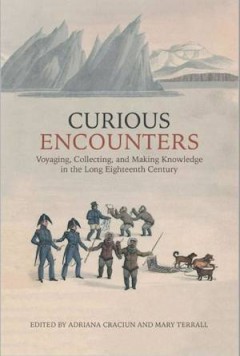
Curious Encounters : Voyaging, Collecting, and Making Knowledge in the Long E…
Curious Encounters uncovers a rich history of global voyaging, collecting, and scientific exploration in the long eighteenth century. Voyagers from Greenland to the Ottoman empire crossed paths with French, British, Polynesian, and Spanish travelers across the world, trading objects and knowledge for diverse ends. The essays in this collection restore our understanding of the encounters between…
- Edition
- -
- ISBN/ISSN
- 9781487503673
- Collation
- -
- Series Title
- -
- Call Number
- 800 CRA c
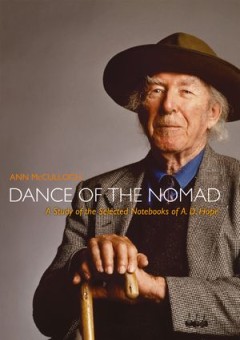
Dance of the Nomad : A Study of the Selected Notebooks of A.D.Hope
The notebooks of A. D. Hope are a portrait of the contradictory essence of the poet’s intellect and character. Shot through with threads of self-awareness and revelation, Hope imbued his notebooks with irony and humour, forming them as a celebration of the joy and terror of human existence. Stripped of intimate revelation, the entries give witness to Hope’s view that art is a superior force…
- Edition
- -
- ISBN/ISSN
- 9781921666919
- Collation
- -
- Series Title
- -
- Call Number
- 800 MCC d
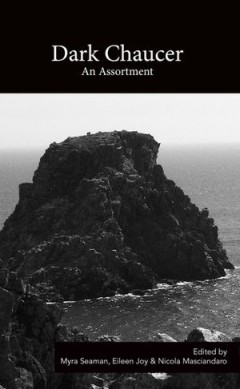
Dark Chaucer : An Assortment
Although widely beloved for its playfulness and comic sensibility, Chaucer’s poetry is also subtly shot through with dark moments that open into obscure and irresolvably haunting vistas, passages into which one might fall head-first and never reach the abyssal bottom, scenes and events where everything could possibly go horribly wrong or where everything that matters seems, if even momentaril…
- Edition
- -
- ISBN/ISSN
- 9780615701073
- Collation
- 224 halaman
- Series Title
- -
- Call Number
- 800 DAR
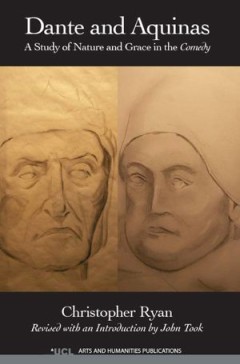
Dante and Aquinas : A Study of Nature and Grace in the Comedy
Christopher Ryan's study of Dante and Aquinas, touching on issues of nature and grace, of explicit and implicit faith, and of desire and destiny, is intended to mark the difference between them in key areas of theological sensibility. Re-shaped and revised by John Took on the basis of papers made available to him from Christopher Ryan's estate, it seeks to deepen our understanding of one of the…
- Edition
- -
- ISBN/ISSN
- 9781909188037
- Collation
- 170 halaman
- Series Title
- -
- Call Number
- 800 RYA d

Wounded Heroes : Vulnerability as a Virtue in Ancient Greek Literature and Ph…
Vulnerability is not often associated with virtue. Yet to be vulnerable is central to human experience. In this book, McCoy examines ways in which Greek epic, tragedy, and philosophy have important insights to offer about the nature of human vulnerability and how human beings might better come to terms with their own vulnerability. While studies of Greek heroism and virtue often focus on streng…
- Edition
- -
- ISBN/ISSN
- 9780199672783
- Collation
- -
- Series Title
- -
- Call Number
- 800 MCC w

Agency : The Entrepreneurial Self in Narratives of Transformation : Debuting …
Which forms of agency does literature offer to the reader in the twenty-first century? This study investigates migrant lives in contemporary fiction published by young British Asian writers. Examining the protagonists’ ideas of ›success‹ in becoming a full member of their society, Jessica Fischer carves out the naturalised model of homo economicus in these texts and in contemporary fictio…
- Edition
- -
- ISBN/ISSN
- 9783826070365
- Collation
- -
- Series Title
- -
- Call Number
- 800 FIS a
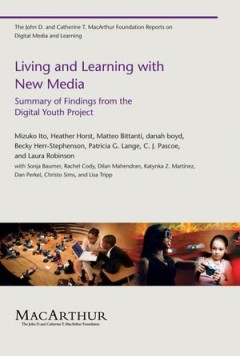
Adelaide : A Literary City
From the tentative beginnings of European settlement to today’s flourishing writing scene, Adelaide has always been a literary city. Novelists, poets and playwrights have lived here; readers have pored over books, sharing them and discussing them; literary celebrities have visited and sometimes stayed; writers have encouraged each other and fought with each other. Adelaide is literary, too, i…
- Edition
- -
- ISBN/ISSN
- 9781922064646
- Collation
- 280 halaman
- Series Title
- -
- Call Number
- 800 ADE
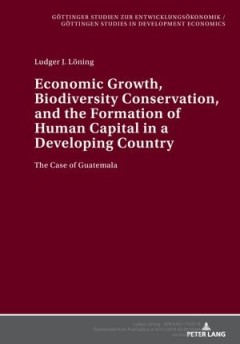
Economic Growth, Biodiversity Conservation, and the Formation of Human Capita…
Can education play a role in fostering economic growth and simultaneously decrease pressure on forests? The aim of this study is to show that it can. Human capital formation is a key element in a development strategy that includes natural resource conservation within the framework of sustained economic growth and poverty alleviation. Consequently, it is not by chance that Guatemala is experienc…
- Edition
- -
- ISBN/ISSN
- 9783631526071
- Collation
- 266 halaman
- Series Title
- -
- Call Number
- 330 LON e
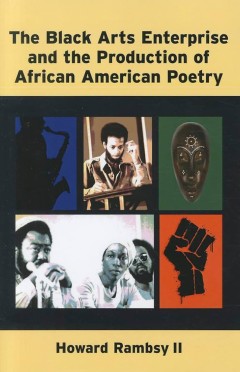
The Black Arts Enterprise and the Production of African American Poetry
The outpouring of creative expression known as the Black Arts Movement of the 1960s and 1970s spawned a burgeoning number of black-owned cultural outlets, including publishing houses, performance spaces, and galleries. Central to the movement were its poets, who in concert with editors, visual artists, critics, and fellow writers published a wide range of black verse and advanced new theories a…
- Edition
- -
- ISBN/ISSN
- 9780472117338
- Collation
- 198 halaman
- Series Title
- -
- Call Number
- 700 RAM b
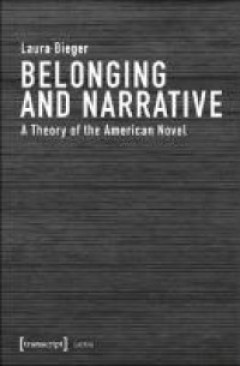
Belonging and Narrative : A Theory of the American Novel
Why did the novel become so popular in the past three centuries, and how did the American novel contribute to this trend? As a key provider of the narrative frames and formulas needed by modern individuals to give meaning and mooring to their lives. Drawing on phenomenological hermeneutics, human geography and social psychology, Laura Bieger contends that belonging is not a given; it is continu…
- Edition
- -
- ISBN/ISSN
- 9783839446003
- Collation
- -
- Series Title
- -
- Call Number
- 800 BIE b
 Computer Science, Information & General Works
Computer Science, Information & General Works  Philosophy & Psychology
Philosophy & Psychology  Religion
Religion  Social Sciences
Social Sciences  Language
Language  Pure Science
Pure Science  Applied Sciences
Applied Sciences  Art & Recreation
Art & Recreation  Literature
Literature  History & Geography
History & Geography